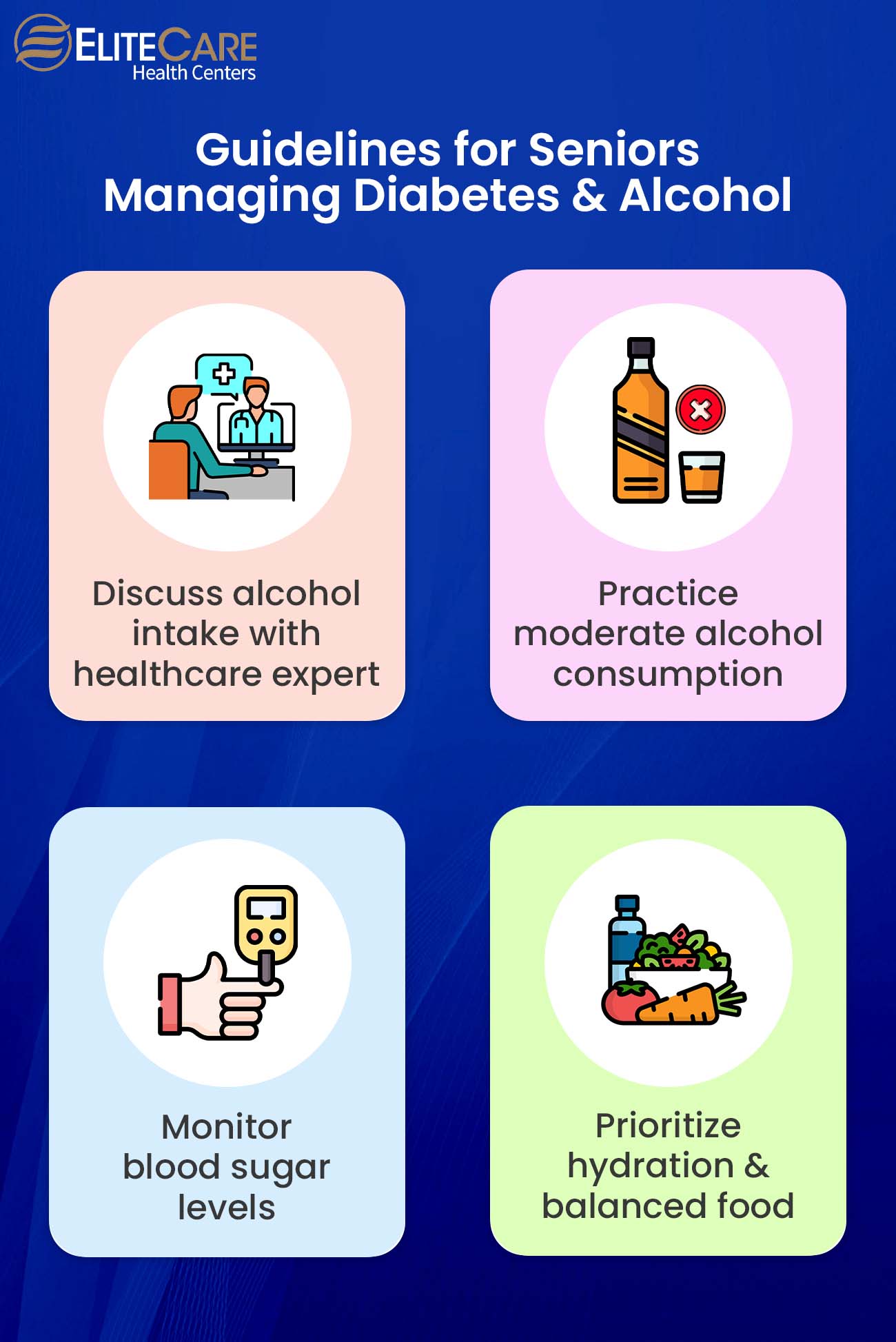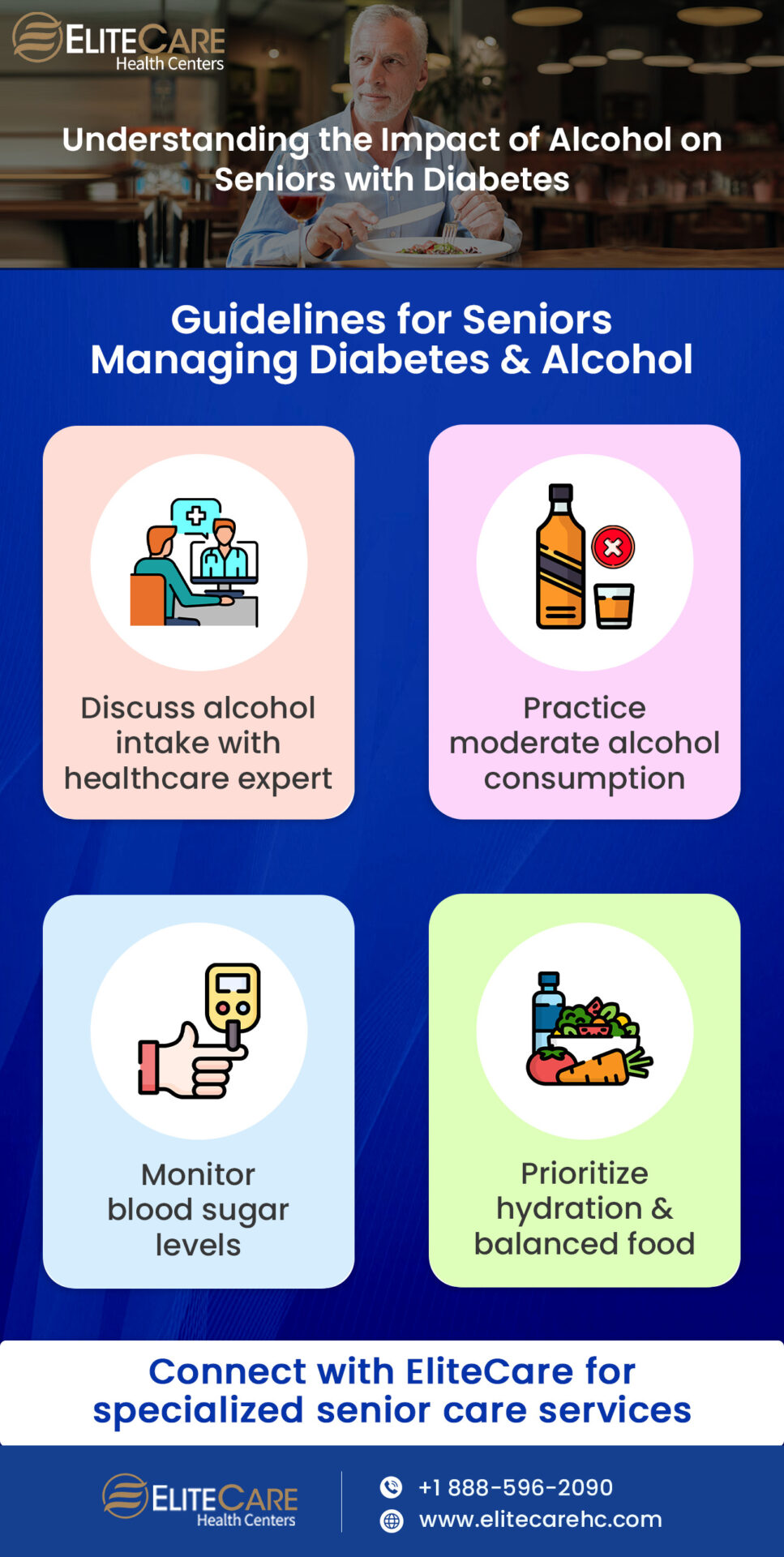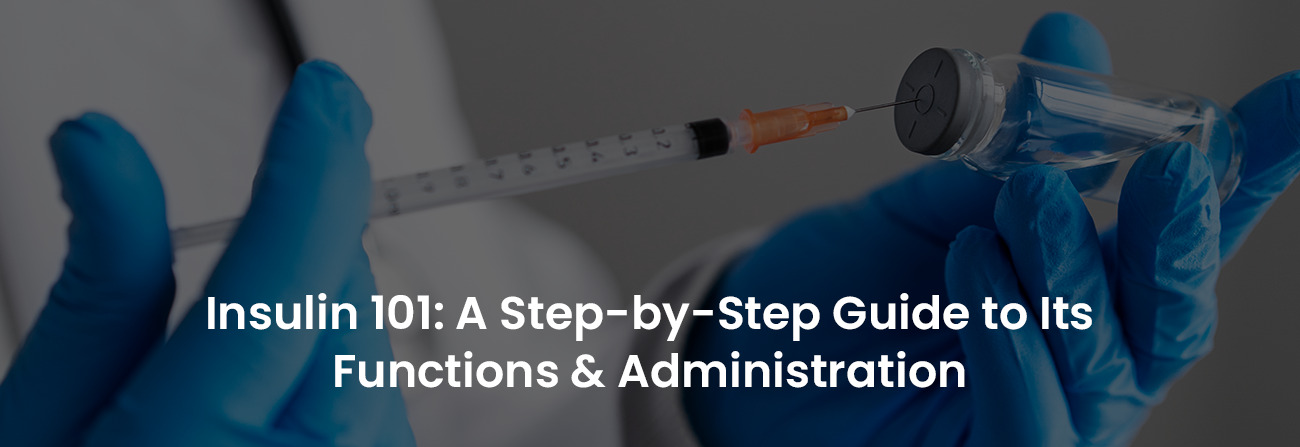
Many people enjoy having a glass of wine or a beer. But can alcohol consumption cause health issues in older adults? Well, seniors often grappling with diabetes face unique challenges regarding alcohol consumption. As the aging population grows, so does the concern surrounding the potential impact of alcohol on blood sugar levels and overall well-being. In this comprehensive guide, let us understand the intricate connection between alcohol and diabetes among seniors and its effects on blood sugar levels and advocate for preventive care measures to prioritize seniors’ health and longevity.
How Alcohol Affects Blood Sugar
When considering the complex relationship between alcohol effects and blood sugar levels, it’s essential to understand the physiological process. As alcohol enters the body, its impact on blood sugar regulation can be intriguing and potentially problematic.
The Liver's Crucial Role
The liver is a multitasking organ responsible for various metabolic functions, including blood sugar regulation. Usually, the liver releases glucose to maintain stable blood sugar levels when the body requires energy between meals or during sleep. However, alcohol consumption can disrupt this process. When alcohol enters the system, the liver shifts its focus to metabolizing alcohol as a priority. This diversion of attention from blood sugar regulation can lead to increased risk factors for hypoglycemia and hyperglycemia.
Navigating the Risks
Seniors with diabetes need to be particularly watchful about the risks associated with alcohol consumption. Alcohol can potentially lower blood sugar levels, leading to hypoglycemia. This is especially risky for seniors who might already be managing fluctuations in blood sugar. On the other hand, certain alcoholic beverages can contribute to elevated blood sugar levels due to their carbohydrate content. This risk of hyperglycemia underscores the importance of understanding one’s drink choices and potential impact.
Factors in the Equation
Multiple factors influence how alcohol interacts with blood sugar levels, emphasizing the issue’s complexity. The type and amount of alcohol consumed plays a significant role. Beverages high in sugar or carbohydrates can cause sharper blood sugar spikes. Additionally, the timing of alcohol consumptions matters. Consuming alcohol on an empty stomach can lead to faster absorption and potentially stronger effects on the blood sugar.
Effects of Alcohol on Seniors with Diabetes
Elite healthcare necessitates a comprehensive understanding of how age, diabetes, and alcohol intersect, emphasizing the importance of informed decisions and vigilant senior care.
1. Age-Related Considerations
According to the Endocrine Society, 33% of adults aged 65 or older have diabetes. This population is more at risk of developing diabetes-related complications like hypoglycemia, kidney failure, and heart disease than younger people with diabetes. The body’s metabolism of alcohol may slow down with age, leading to prolonged effects. This can be particularly concerning for seniors with diabetes, as their blood sugar control mechanisms might already be compromised. Discussing with a primary care physician or an annual physical exam can provide crucial insights into how individual age-related factors might impact the body’s response to alcohol.
2. Increased Risk of Complications
Alcohol consumption can amplify many risks. Heart issues, already a concern in diabetes, can be worsened by alcohol’s impact on blood pressure and heart rate. Neuropathy, a common diabetes complication affecting the nerves, can worsen further due to alcohol’s neurotoxic effects. Moreover, certain medications seniors take to manage diabetes and related conditions might interact negatively with alcohol, leading to unforeseen consequences. Collaboration with senior care service specialists at healthcare centers is crucial to mitigate these risks.
3. Impact on Overall Health
Maintaining a healthy lifestyle is paramount for seniors with diabetes, where every choice plays a crucial role. The delicate balance between alcohol consumption and other aspects of senior health cannot be underestimated. While moderate alcohol consumption might be a consideration, it’s essential to recognize its potential to disrupt routines established to manage diabetes effectively. By addressing these conflicts at medical clinics, seniors can make informed choices that prioritize their well-being and align with their broader health goals.
Guidelines for Seniors with Diabetes

By following guidelines by Elite Medical Center, seniors can effectively manage their diabetes while considering their enjoyment and overall health. Essential guidelines are as follows:
1. Consultation with Healthcare Provider
The importance of open communication with healthcare providers is central to the ethos of elite health and wellness. Before embarking on any changes in alcohol consumption, seniors should prioritize discussing their plans with their primary care centers or health care centers nearby. Sharing drinking habits, medications, and health conditions provides a comprehensive foundation for personalized advice, ensuring that decisions align with their health needs.
2. Moderate and Informed Consumption
As per Elite Healthcare principles, setting limits on alcohol intake is crucial. Opting for lower-risk alcoholic beverages, such as dry wines or light beers, can minimize the impact on blood sugar levels. The caution against sugary mixers reflects the need to be mindful of hidden sugars that can aggravate blood sugar fluctuations.
3. Monitoring Blood Sugar
The concept of routine physical exams and detailed monitoring extends to alcohol consumption. Seniors are advised to diligently track their blood sugar levels before, during, and after drinking. This practice helps identify patterns and potential challenges, enabling swift responses to fluctuations. Should blood sugar levels deviate unexpectedly, understanding how to respond effectively becomes an essential tool in diabetes management. Seeking guidance from primary care center providers regarding tailored strategies is advisable.
4. Hydration and Food Intake
Seniors should prioritize staying hydrated while consuming alcohol, as dehydration can worsen blood sugar imbalances. Pairing alcohol consumption with food—preferably complex carbohydrates, proteins, and healthy fats—can help stabilize blood sugar levels. This strategic approach aligns with elite health and wellness principles, ensuring that enjoyment doesn’t come at the expense of health.
The Bottom Line
The significance of making well-informed choices regarding alcohol consumption for seniors with diabetes cannot be overstated. By embracing the guidance in this blog post, seniors can navigate the complexities of alcohol consumption with diabetes and promote their overall well-being. EliteCare Health Centers hold a wealth of resources for seniors with chronic health issues. These specialized senior care services offer tailored support, personalized strategies, and the expertise of physicians who understand the needs of seniors. Older adults need to strike a harmonious balance between enjoying life’s moments and safeguarding their health, ensuring a vibrant and fulfilling journey through their golden years.






